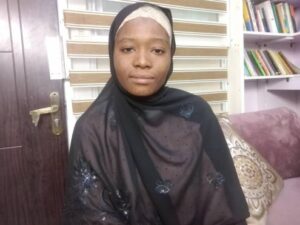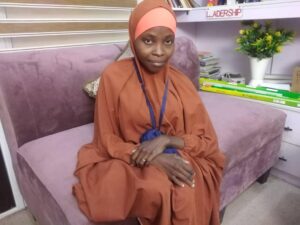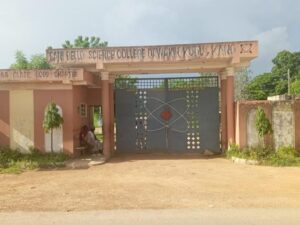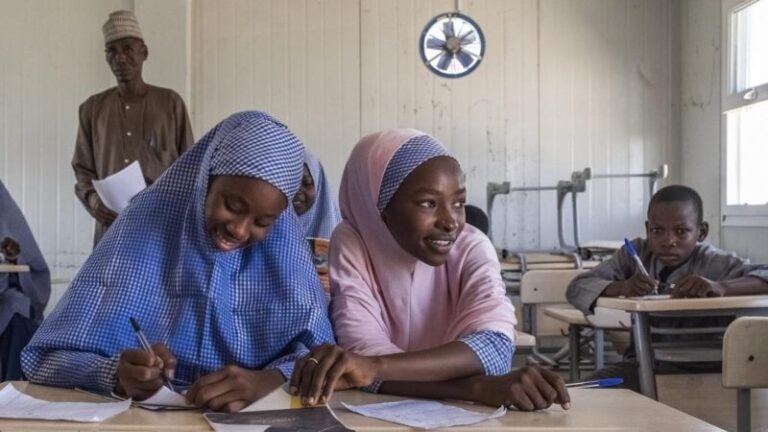By Kolawole Omoniyi
For decades, gender disparities in education have remained a challenge in Nigeria, particularly in the northern regions. In Kano State, the gender divide in science and technical education has been stark, with only ten out of 49 science and technical colleges dedicated to girls, compared to 39 for boys. This imbalance has hindered opportunities for young girls aspiring to excel in Science, Technology, Engineering, and Mathematics (STEM) fields. However, while the Kano State government is now taking bold steps to reverse this trend, experts believe the adoption of Gender Responsive Education Sector Planning (GRESP) could change the narratives.
Historically, cultural norms and societal expectations have played a significant role in limiting educational opportunities for girls across Nigeria and Kano State in particular, Grassroots Parrot reports.
Many families prioritize domestic responsibilities and early marriages over education. In a society where gender roles are often rigidly defined, many young women aspiring to enter the science and tech industry face uncertainty and discouragement.
This quiet struggle unfolds daily in the North-West state, as young girls face significant barriers to accessing quality science and technical education.
Miss Amina Mohammed is one of such individuals who shared her experience of overcoming societal biases that question women’s ability to excel in STEM fields.
Even Teacher Reinforcing Gender Stereotypes in Tech, Graduate Alleges
Miss Mohammed, a graduate of…..highlighted how family members and even teachers often reinforce the notion that tech skills are better suited for men.
READ ALSO: Kano Compulsory Education: Myth Or Reality As Schoolgirls Clean Cars During School Hours
“Apart from my home and maybe my father, the people around me, including family and teachers, often doubted my ability to pursue a science and tech career,” she said.
“When I showed interest in science and even learning skills like graphic design or web development, people would ask, ‘What can you do with computers as a female?’ But if I wanted to learn cooking, it will be immediately accepted.”

She explained that societal expectations placed more emphasis on domestic skills for women, discouraging them from venturing into STEM fields.
“Many believed that investing in such skills was futile since, ultimately, women were expected to prioritize marriage and family over career ambitions”. She added.
Despite these obstacles, she credited her father for supporting her aspirations, emphasizing that he never let societal expectations dictate her choices.
Unlike Amina Mohammed, who received her father’s approval, 19-year-old Zuwera Habib, a resident of Kano municipal, is still striving to convince her father to support her dream of pursuing a career in science.
Despite her passion and determination, she faces resistance rooted in traditional expectations, where women are often encouraged to follow more conventional paths.
Zuwaira remains hopeful that with time and perseverance, she will gain her father’s support and break barriers in the field of science.
READ ALSO: Kano Gov Declares State Of Emergency On Education
“When I told my father I wanted to study engineering, he laughed and asked what use such knowledge would be in my husband’s home,” Aisha recalls, currently seeking admission in one of nursing schools in the state.
Mohammed and Habib’s stories are a reflection of the broader struggles many women face in breaking into male-dominated industries.
Engr. Mustapha Habu Ringim, founder of the Engausa Skills Development Foundation, said female participation in science and technical fields has historically been low due to societal constraints.
According to him, cultural barriers, misconceptions about religion, and the lack of science education in Hausa are major challenges preventing women from acquiring science technical skills in Kano.
However, the narrative is gradually changing with the introduction of inclusive technical skills programs designed to bridge the gap and empower more women in the field.
“With initiatives that accommodate cultural and linguistic realities, we are witnessing a shift where more women are gaining access to science and technical education to challenge the long-standing stereotypes,” Ringim stated.
READ ALSO: Hidden Health, Education Crisis Caused by Unsafe Water in Kano Communities
Female PWDs Member Challenges Gender Stereotypes in Tech
On her part, Kalima Alhassan, after acquiring technical training at the Engausa Skills Development Foundation, she now repairs phones, defying stereotypes and becoming a source of inspiration.
As both a woman and a person with a disability, Kalima has gained significant support, with many people choosing to patronize her services.
She takes immense pride in her ability to be self-reliant, especially in a society where some of her peers resort to street begging for survival.

“I am extremely happy to be independent and earn a living through my skills,” she said, expressing gratitude for the opportunity to build a sustainable future.
Similarly, poverty amplifies these challenges. When families must make difficult financial choices about education, sons typically receive preference.
The World Bank estimates that approximately 65% of northern Nigerian girls from low-income households receive no formal schooling beyond primary level, compared to 35% of boys from similar backgrounds.
The economic challenge seems straightforward to many families: investing in a daughter’s technical education appears less practical when prevailing norms suggest her primary future role will be domestic.
READ ALSO: CHRICED Asks Tinubu To Snub the Proposed 12-4 Education Model
Even when cultural and economic barriers are overcome, infrastructure limitations present further obstacles. The lack of adequate schools and safe learning environments for girls has contributed to the low enrollment and retention rates in science and technical institutions.
Moreover, Kano State lacks mixed-gender science and technical schools, with the existing institutions predominantly catering to boys. Also, some of the schools lack adequate laboratory facilities, qualified science teachers, and basic learning materials.

Ten of 49 Science and Tech Schools in Kano Dedicated to Girls
According to Dr. Dahiru Saleh Muhammed, Executive Secretary of the Kano State Science and Technical Board, the state currently has 49 functioning science and technical colleges, with only 10 dedicated to girls compared to 39 for boys.
Data of Science and Technical Colleges in Kano State
| No of Science Schools | 49 | Percentage |
| Boys | 39 | 74% |
| Girls | 10 | 26% |
“The state currently operates 49 functional science and technical colleges, yet only 10 are dedicated to girls, while 39 cater exclusively to boys.” He said.
Additionally, the teacher-to-student ratio in the state is 1:131. This is expressively higher than UNESCO’s recommended 1:35 and double the state’s target of 1:60, according to the Partnership for Learning for All in Nigeria (PLANE) report.
For instance, the Kano State Science and Technical Education Board currently maintains a teaching staff of 1,533 educators, a substantial drop from the previous strength of approximately 2,500 teachers.
Dr. Muhammed attributed this reduction of nearly 1,000 teachers to death, retirement, transfers, and service-related departures without systemic mechanism for their immediate replacement.
READ ALSO: Child Marriage: What Kano Needs To Stop 3 Of 4 Girls Dropping Out Of Secondary Schools
“We have put our request to His Excellency (the Governor) and the Commissioner of Education,” said the board Executive Director. “We’re pleased to share that our request for teacher recruitment has been approved for replacement.”
He also spoke on other efforts being put in place to bridge the gender disparity. “The Kano State government has announced an ambitious plan to establish 130 new schools, with a primary focus on increasing female participation in science and technical education.
“This initiative, supported by the World Bank-assisted AGILE program, aims to bridge the gap and ensure that girls have equal access to quality education in STEM fields.
“One of the key components of this initiative is the establishment of new science and technical colleges in rural areas, where access to education has been historically limited.
“Most of the colleges are to be established in rural areas,” Muhammad emphasized, highlighting the strategic approach of reaching underserved communities.” He said.
He also addressed concerns about infrastructure and student welfare, asserting that boarding college students are satisfied with their food quality and that science and technical support remain strong.
Beyond Infrastructure: Kano Needs GREPs Adoption in its ESP
While these efforts are commendable, showcasing the state government’s concerns toward addressing gender barriers in STEM fields, it is paramount to note that they are not enough without factoring mechanisms to measure their impacts in the state’s Education Sector Plan (ESP).
However, the state government needs to expedite action towards the adoption of Gender Responsive Education Sector Planning (GRESP) in its ESP to tackle this stark gender disparity that has long been a result of historical educational policies.
READ ALSO: Kano Community Where No Girl Has Finished Secondary School In 300 Years
What Can GRESP Offer?
Gender-Responsive Education Sector Planning (GRESP) offers strategic approaches to address the challenges facing girls in science and technical schools in Kano State. It provides frameworks to address these context-specific challenges.
In this regard, the state ministry of education is expected to collaborate with religious and traditional leaders on a strategic approach to actively promote and support the girls’ education in the course of formulating the ESP.
The stakeholders for the ESP formulation should initiate pragmatic parent education programs that highlight the economic and social advantages of girls pursuing STEM education.
Such education programs could include periodic community dialogues with adequate budget provision to dispel the misconceptions and foster positive perceptions about girls in technical fields.
Additionally, the ESP should include provisions for girl-friendly facilities that ensure proper sanitation and privacy, creating a safe and comfortable learning environment across the state.
The state government, ministry of education and other technical partners should also initiate gender-inclusive teaching materials that showcase the achievements of female scientists from Kano State to inspire young girls.
Similarly, recruitment of more female teachers to serve as role models and mentors, inspiring young girls to pursue careers in STEM fields is also paramount.
The ESP should have a specific automated template to cater for death, retirement, transfers, and service-related departures of teachers to address the teachers’ deficit.
The ESP should specifically define provision for periodic and comprehensive training for teachers on gender-responsive teaching methods to enhance an inclusive and supportive learning environment.
READ ALSO: INVESTIGATION: Pregnant Women ‘Die Monthly’ In Kano Community Despite Modern Healthcare Facility
Introduction of hands-on learning approaches that enhance students’ confidence and engagement in technical subjects should also be prioritized in the ESP.
The stakeholders should also in the state’s ESP create mentorship programs connecting girls with female professionals in STEM fields and provide career counseling that highlights opportunities for women in the fields.
Similarly, there should be establishment of scholarships specifically for girls pursuing technical education with periodic and specific budget and commitment for fund release, implementation, monitoring and evaluation for transparency and accountability.
The ESP should also cater for re-entry or second chance policies for young mothers who are still inspired to pursue their career in STEM fields.
Additionally, effective GRESP oriented ESP in Kano should also track enrolment, retention and completion rate for girls in STEM fields and their academic performance as well as their transition rates to higher education or technical employment.
By implementing these comprehensive approaches, GRESP can help overcome the systemic barriers facing girls in science and technical schools in Kano State, creating pathways for their greater participation in STEM fields.

